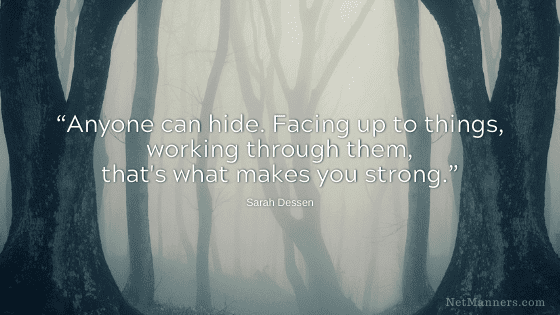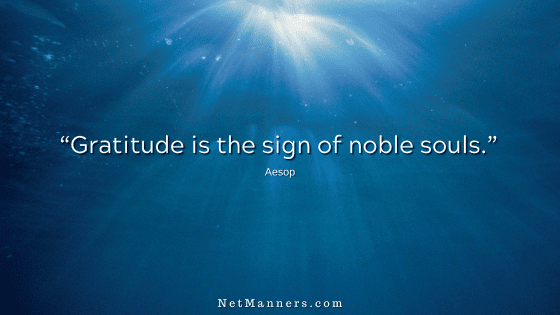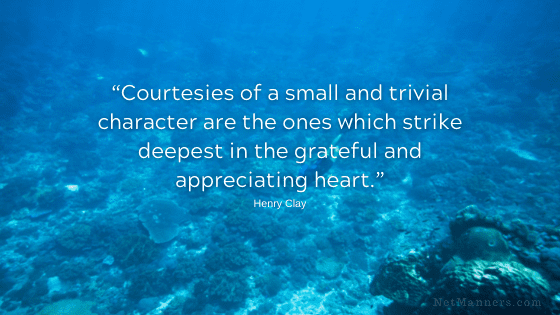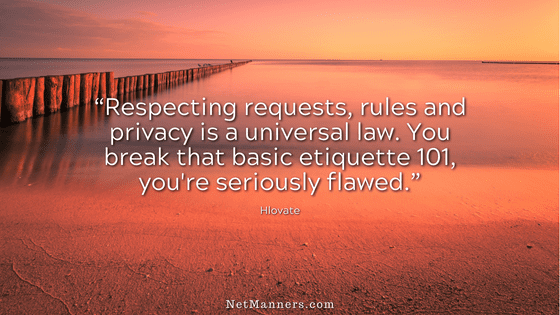Are Anonymous Emails Ethical?

Email Etiquette includes displaying your name in the From field settings of your email program. It’s easy enough to accomplish in your software settings. So, why do some onliners not note their name?
Email Etiquette Includes Transparency
You do not want to make recipients wonder who an email in their inbox is from based on your email address. And not all email addresses clarify who the sender is. That is unless that is your plan.
Recently I’ve received a slew of anonymous emails. Every single one coincidentally reflected a lack of communication skills, clarity, and courtesy. If I typed like that, I would probably not want folks to know who I was either.
Is using just an email address to enable emailing in anonymity a smart move? Unless you fear reprisal, I’m unsure why you choose to be anonymous.
A good rule of thumb is if you wouldn’t be willing to say what you type to that contact’s face, it is probably best not to type it at all.
I’ve had folks email me with a generic address when they want to be purposely rude and don’t have the intestinal fortitude to back up their questions, comments, or claims by identifying themselves. Sad for them if you think about it.
Emails of that nature, in most cases, are not viewed as serious and will be immediately deleted. (Of course, threatening, insulting, and stalking emails are an entirely different subject.)
Being Anonymous Lacks Credibility
There are several reasons why sending anonymous emails without revealing your name or identity is generally not recommended. Here are a few:
Anonymous = Deligitimate
I’m pretty visible online. So naturally, I have many sites and am more exposed than most to those with no manners and courtesy.
I shake my head at what these anonymous emailers take their time to send. How sad for them that this is how they choose to spend their time. All the while making it clear to perfect strangers how irrelevant, unintelligent, and ignorant they can be.
Let’s be clear. I enjoy debate, as do most adults. One of the neat things about being online is you can share different points of view and opinions.
You Are How You Are Perceived
If you don’t include your name:
You should not expect a response. Nor should you presume your contact will take you seriously.
I respond courteously d to those who contact ly; whether they agree with me is moot. However, I do not respond to sarcastic comments, digs (and threats), and callow statements by those who don’t have the maturity to communicate as an adult.
I am not alone…
While there may be certain circumstances where anonymous communication is justified, such as whistleblowing, fear of retaliation, or reporting sensitive information, it is crucial to weigh the potential risks and consider alternative methods that balance anonymity with accountability and responsible communication.
Many have shared with me that they feel the same way. More than a few have stated that, just as I do, they delete emails anonymous emails where the sender cannot communicate as an adult.
If it isn’t worth your time to identify yourself and type as though you have a basic education, don’t expect busy folks to take the time to acknowledge your emails. They won’t.
Email is all about perception. Act like a limp-wristed bully, and that’s how those you email will view you. Communicate as though you are illiterate with no manners or courtesy — and that’s precisely what those on the other side will think of you.
Don’t identify yourself or sign your name in your emails; you will be seen as the nobody you project yourself to be.






